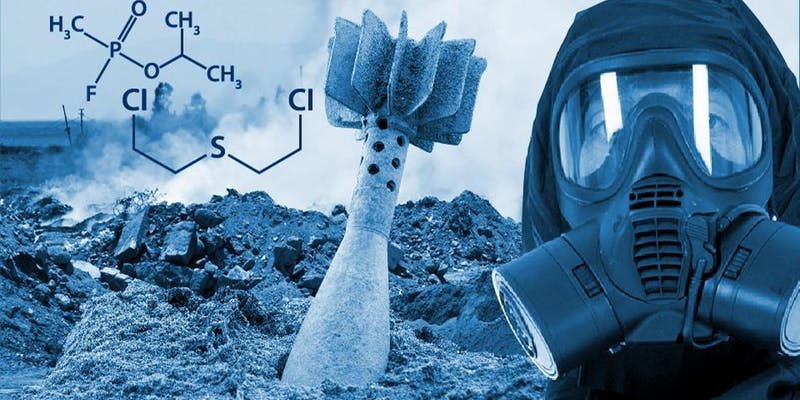
The UK Defence and Security Accelerator (DASA) will organise a collaboration event for its ‘Don’t Blow it’ competition that focuses on mitigating the threat of chemical and biological weapons on the battlefield.
The objective of the event is to encourage new relationships and collaboration to create innovative technology for Phase II of the competition and beyond, as well as identify new project opportunities.

Discover B2B Marketing That Performs
Combine business intelligence and editorial excellence to reach engaged professionals across 36 leading media platforms.
Successful bidders from Phase I, experts in chemical and biological weapon disposal, and those who intend to bid into Phase II can participate in the event, which will be held on 22 May 2019 at Victory Services Club in London.
Companies with technologies that can offer potential solutions for the competition, and public sector organisations interested in access, delay and destruction of munitions in the field can also participate in the event.
Under Phase I of the competition, proposals were sought for innovative technologies and approaches to access, disable and / or destroy chemical and biological munitions, improvised explosive devices (IEDs) containing chemical and biological agents, as well as containers of bulk chemical or biological agents, in challenging environments.
The first phase of the competition addressed three challenge areas, namely access, disable, and destroy.

US Tariffs are shifting - will you react or anticipate?
Don’t let policy changes catch you off guard. Stay proactive with real-time data and expert analysis.
By GlobalDataAccess, the first challenge, looked for technologies and approaches that can access munitions, IEDs and containers of bulk agent without depending on the original design features such as filling ports, which are access holes into a munition or container that enable them to be filled or drained.
The second challenge, disable, sought innovative technologies and approaches that can prevent munitions, IEDs and bulk agents being used as intended, which could be achieved by delaying their deployment to such a degree that it prevents their imminent use.
DASA said that proposed technology or approaches should prevent munitions, IEDs or bulk agents from being used for their intended purpose temporarily or, if possible, permanently.
Under the third challenge, destroy, the competition sought novel and innovative technologies and approaches that can permanently and irreversibly destroy munitions, IEDs and bulk agents.
Registration to participate in the collaboration event will close on 16 May.





